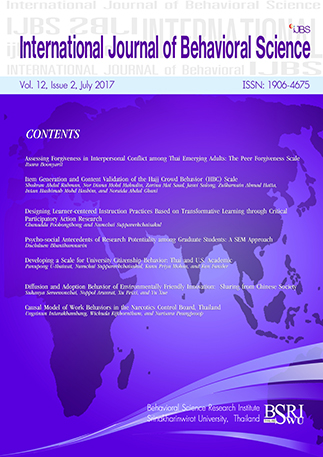Diffusion and Adoption Behavior of Environmentally Friendly Innovation: Sharing from Chinese Society
Main Article Content
Abstract
Use of solar energy as one of environmentally friendly innovations has been adopted in rural Chinese society to save the environment and money. This study aims to explore the processes and drivers of, and the barriers to, rural people’s adoption of solar water heater (SWH), including to analyze and synthesize the diffusion and adoption of practical solar energy innovations. Based on the integration of diffusion of innovations theory, the theory of reasoned action, and the theory of acceptance model, the factors of SWH adoption were established. Binary logistics regression was used to analyze the factors influencing rural people’s decision to adopt SWH. The key drivers are social influence, physical need and innovation attributes, respectively. To achieve widespread effective innovations from policy level to rural communities, a two-step flow of diffusion from the government to salespersons and then to rural communities, especially earlier adopters, to motivate rural people’s behavioral intention to innovation adoption is strongly recommended. The practical implications for other agricultural rural communities are that the adoption processes and drivers to behavioral change need high collaboration and commitment by related ministries along with the private and academic sectors.


